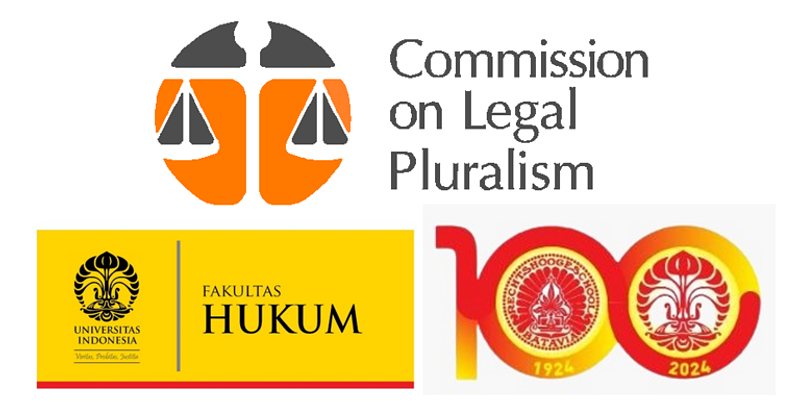Call for papers: The transformative power of legal pluralism?

The International conference of the Commission on Legal Pluralism, "The transformative power of legal pluralism? Planetary challenges in a diverse and multi-polar world", in cooperation with the Faculty of Law, Universitas Indonesia, will take place on 13-15 January 2025, Jakarta, Indonesia, preceded by an International Course on Legal Pluralism (8-11 January 2025).
The conference takes as its point of departure the relational character of law and legal pluralism and will critically examine the role plural configurations of normative orders and their entanglements play across the globe. The increasing demand for legal intervention to regulate the most serious challenges humanity is facing at multiple scales, raises crucial questions about the role of law in a world threatened by climate change, environmental destruction, geo-political tensions and violent conflict, and of legal pluralism beyond its understanding as an analytical concept.
Current responses to environmental challenges are, for instance, multispecies normativities, legal personhood and rights of nature, and extending the scope of human rights to attend to humans’ planetary embeddedness, intergenerational equity and a healthy environment. Other important developments are the decolonial critique of international law as a hegemonic imposition and critical approaches to the normative effects of technoscience and the digital transformation of society, cyberlaw, and especially the role of artificial intelligence. These and other issues have increasingly transformed ‘classical’ fields of legal pluralism scholarship. A shift in emphasis from social security to an extended notion of care that encompasses power, normativity and responsibility, from gender to intersectionality, or from natural resources to ‘nature’ may be mentioned here. At the same time, the more classical themes of legal anthropology have not lost their importance: for millions of people nature is (also) a ‘resource’, diverse forms of social security are crucial, while issues of family law, personal law and the often problematic relationships between state law, customary law and religious law continue to deeply influence their daily lives.
Thus, the conference situates legal pluralism between pluriversality and everyday lived experiences in coping with the planetary challenges we are facing today. In this vein, the call for panels is open to discussions from a whole range of topics, debates and arenas. In exploring these dimensions, the conference aims both to broaden and deepen academic legal debates, and to engage with practitioners and activists who have first-hand experience in dealing with law in practice. Socio-legally, Indonesia and Southeast Asia are pluriverses themselves, representing a wide variety of complexly interacting legal orders acting upon both the more classical fields of legal anthropology as well as new ones dealing with the challenges of the 21st century. Therefore, we especially invite voices from Southeast Asia to highlight at the conference the innovative impulses they have recently given to legal pluralism scholarship in dealing with environmental, social and other challenges in the region.
The Commission on Legal Pluralism invites scholars and practitioners to present contemporary papers on these and related themes at the 2025 Conference. Proposed panels linked to the conference theme can be found in the attachment to this call for papers. It is hoped that the biannual conference will offer a dynamic and vibrant space for further expansion of perspectives in debating issues and challenges relating to legal pluralism. Hence, you are also welcome to send paper proposals that may not appear to be directly or indirectly linked to the listed panels.
Submissions should include (a) an abstract of no more than 250 words, (b) a title, (c) name(s), institutional affiliations(s), and email address(es) of author(s), and optionally (d) the panel in which authors prefer to present their paper. Please send your abstracts to j.m.ubink@law.leidenuniv.nl (for the attention of Professor Janine Ubink) no later than July 5, 2024.
